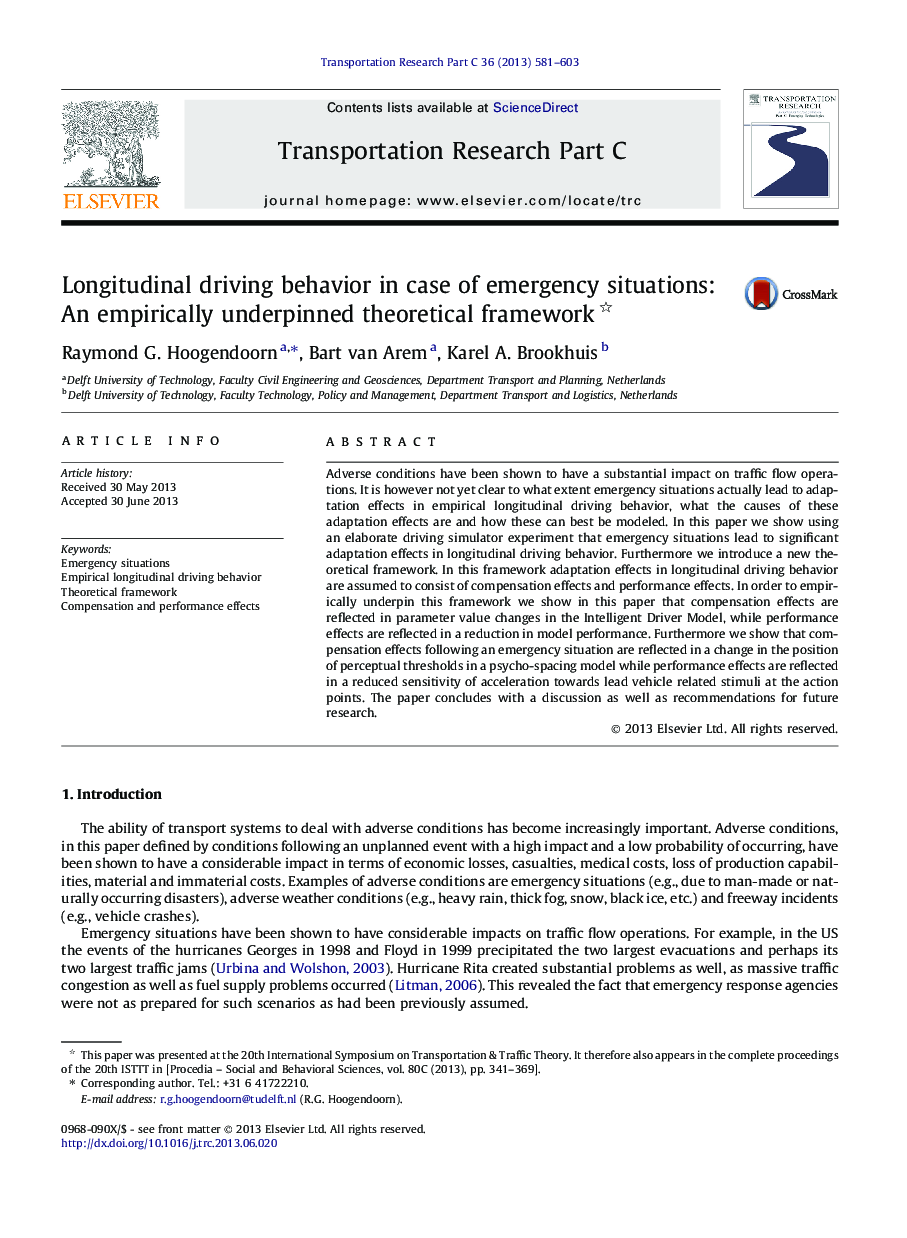| Article ID | Journal | Published Year | Pages | File Type |
|---|---|---|---|---|
| 6937334 | Transportation Research Part C: Emerging Technologies | 2013 | 23 Pages |
Abstract
Adverse conditions have been shown to have a substantial impact on traffic flow operations. It is however not yet clear to what extent emergency situations actually lead to adaptation effects in empirical longitudinal driving behavior, what the causes of these adaptation effects are and how these can best be modeled. In this paper we show using an elaborate driving simulator experiment that emergency situations lead to significant adaptation effects in longitudinal driving behavior. Furthermore we introduce a new theoretical framework. In this framework adaptation effects in longitudinal driving behavior are assumed to consist of compensation effects and performance effects. In order to empirically underpin this framework we show in this paper that compensation effects are reflected in parameter value changes in the Intelligent Driver Model, while performance effects are reflected in a reduction in model performance. Furthermore we show that compensation effects following an emergency situation are reflected in a change in the position of perceptual thresholds in a psycho-spacing model while performance effects are reflected in a reduced sensitivity of acceleration towards lead vehicle related stimuli at the action points. The paper concludes with a discussion as well as recommendations for future research.
Related Topics
Physical Sciences and Engineering
Computer Science
Computer Science Applications
Authors
Raymond G. Hoogendoorn, Bart van Arem, Karel A. Brookhuis,
